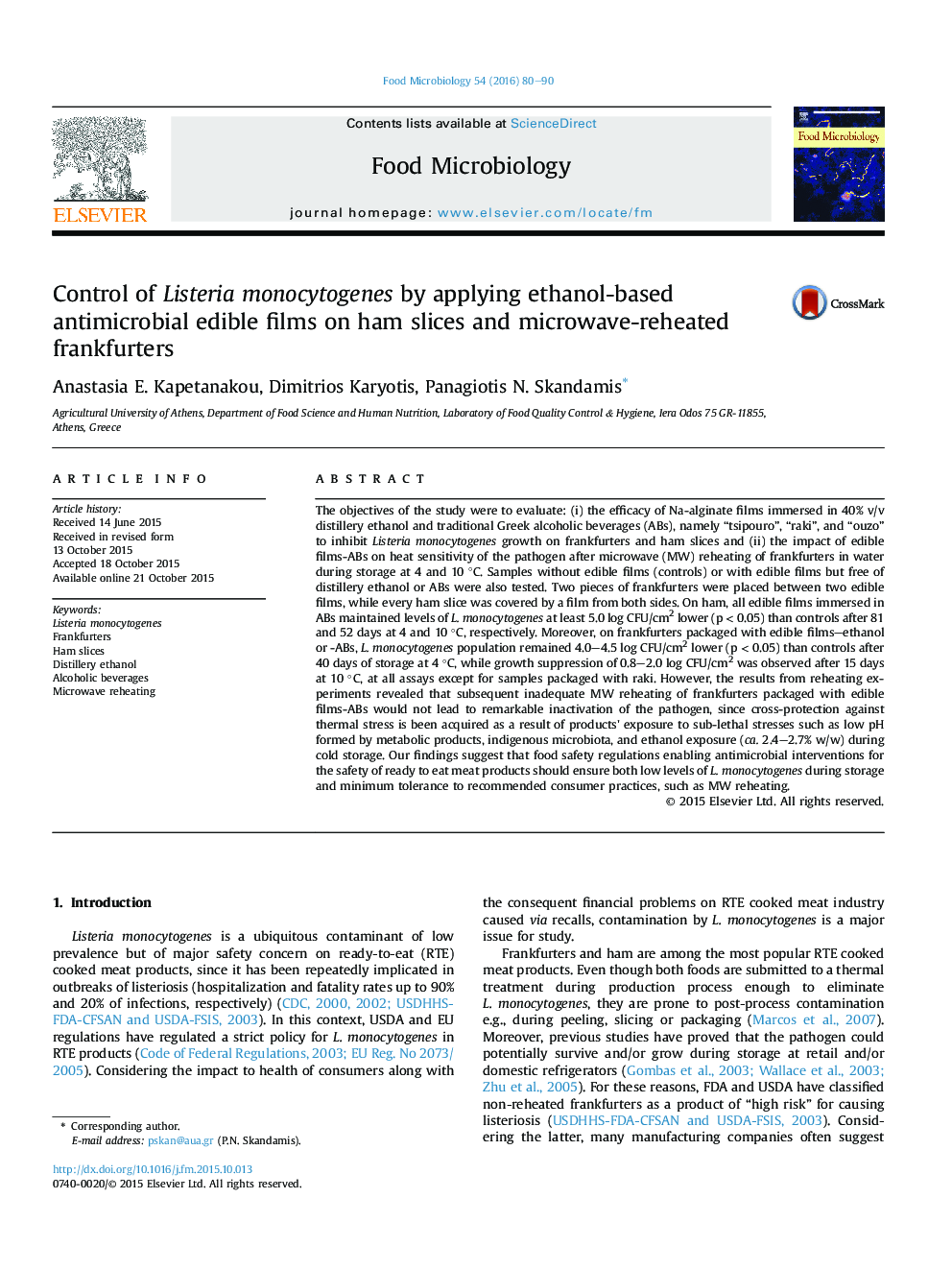| Article ID | Journal | Published Year | Pages | File Type |
|---|---|---|---|---|
| 4362631 | Food Microbiology | 2016 | 11 Pages |
•Ethanol-based edible films inhibited Listeria monocytogenes growth on frankfurters and ham.•Pure ethanol suppressed stronger L. monocytogenes growth than alcoholic beverages.•Pathogen survived on frankfurters with antimicrobials even after microwave reheating.•Protection against thermal stress was induced by pathogen exposure to sub-lethal pH.
The objectives of the study were to evaluate: (i) the efficacy of Na-alginate films immersed in 40% v/v distillery ethanol and traditional Greek alcoholic beverages (ABs), namely “tsipouro”, “raki”, and “ouzo” to inhibit Listeria monocytogenes growth on frankfurters and ham slices and (ii) the impact of edible films-ABs on heat sensitivity of the pathogen after microwave (MW) reheating of frankfurters in water during storage at 4 and 10 °C. Samples without edible films (controls) or with edible films but free of distillery ethanol or ABs were also tested. Two pieces of frankfurters were placed between two edible films, while every ham slice was covered by a film from both sides. On ham, all edible films immersed in ABs maintained levels of L. monocytogenes at least 5.0 log CFU/cm2 lower (p < 0.05) than controls after 81 and 52 days at 4 and 10 °C, respectively. Moreover, on frankfurters packaged with edible films–ethanol or -ABs, L. monocytogenes population remained 4.0–4.5 log CFU/cm2 lower (p < 0.05) than controls after 40 days of storage at 4 °C, while growth suppression of 0.8–2.0 log CFU/cm2 was observed after 15 days at 10 °C, at all assays except for samples packaged with raki. However, the results from reheating experiments revealed that subsequent inadequate MW reheating of frankfurters packaged with edible films-ABs would not lead to remarkable inactivation of the pathogen, since cross-protection against thermal stress is been acquired as a result of products' exposure to sub-lethal stresses such as low pH formed by metabolic products, indigenous microbiota, and ethanol exposure (ca. 2.4–2.7% w/w) during cold storage. Our findings suggest that food safety regulations enabling antimicrobial interventions for the safety of ready to eat meat products should ensure both low levels of L. monocytogenes during storage and minimum tolerance to recommended consumer practices, such as MW reheating.
